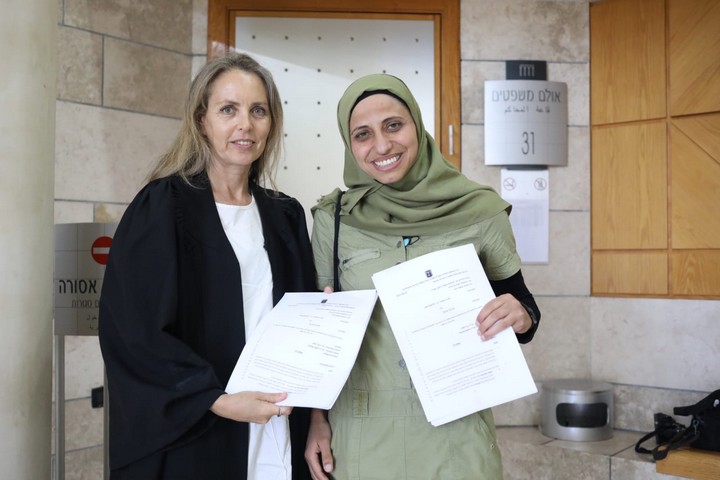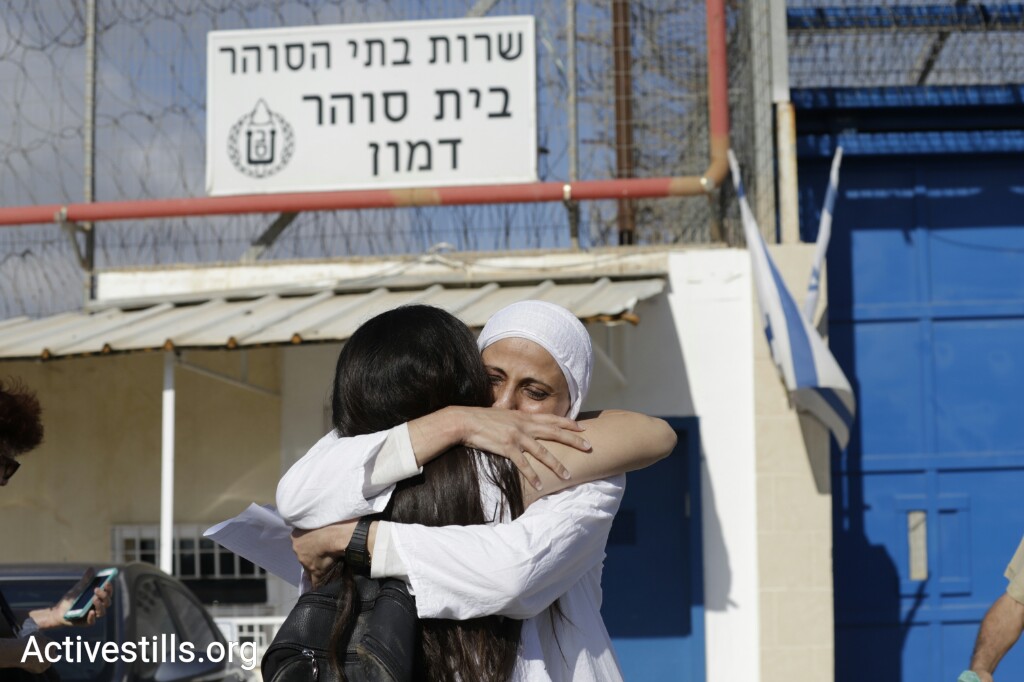Dareen Tatour sat in prison and was put under house arrest for a poem she published on Facebook. Now an Israeli court has decide to partially overturn her conviction.

An Israeli court partially overturned the conviction of Palestinian poet Dareen Tatour on Thursday, ruling that a poem she wrote, which landed her in prison last year, does not constitute incitement to violence.
The Nazareth District Court accepted an appeal by Tatour, who spent four months in prison and nearly three years under house arrest for a poem she wrote during the so-called “Knife Intifada” in 2015. The court accepted that the poem, “Resist My People, Resist Them,” which she published on her personal Facebook page, did not constitute incitement, despite the discomfort it might cause the public. Meanwhile the court let stand her conviction over two other social media posts, which included support for Islamic Jihad, a proscribed group.
The court also recognized Tatour as a poet, as she published the poem under her Facebook page titled “Dareen Tatour the Poet,” which she used until it was shut down following her arrest. Tatour did not appeal her sentence, which she has already served.
“This verdict is important because it tells the authorities not to interfere in creativity, not interfere with art,” Tatour’s attorney, Gaby Lasky, said after the hearing. “We are free, thinking people and your job is to allow creativity and expression, not make us censor ourselves and constantly fear persecution.”
“There is no doubt that Dareen’s case, along with others, is proof that we are entering a dark era for freedom of expression,” Lasky added.
Tatour was arrested in October 2015, after which she spent three months in jail before being placed under house arrest for nearly two-and-a-half years. Her house arrest, which began in January 2016, included various restrictions. At first she was held at her brother’s home who lives in Kiryat Ono, a suburb of Tel Aviv. Only after a legal struggle was she permitted to return to her parents’ home in Reineh. Her family was forced to disconnect the internet at home and Tatour was forbidden from using a computer. For months she was forced to wear an ankle monitor.
She was convicted in May 2018 of incitement to terrorism and violence and sentenced to five months in prison. She was released on September 20, 2018.
“I recall all the hearings, all the arguments over the poem, whether it constitutes incitement or not,” Tatour said after the three-judge panel announced its decision. “Now, after all the suffering I endured, they were finally convinced that the poem does not incite. It’s crazy to me.”
“I’m glad I fought until the end and didn’t give up,” she continued, “that I fought over every word in my poem. I guess that in order to write one needs to suffer.”

In the 54-page ruling, the three justices wrote that it was important to note that Tatour’s writing was part of a work of art.
“The fact that this is the work by a poet must be taken into account when examining the principle and status of freedom of expression,” they wrote. The judges let stand convictions for two other Facebook publications, including a Facebook photo that read “I’m the next martyr.”
The judges added that it is hard to find similar cases to that of Tatour. “We emphasize that freedom of expression is even more pronounced when it comes to artistic freedom. True, this does not provide legitimacy to cross the bounds of the law, but it certainly has to bend the line to protect the right of freedom to create.”
This article was first published in Hebrew on Local Call. Read it here.

